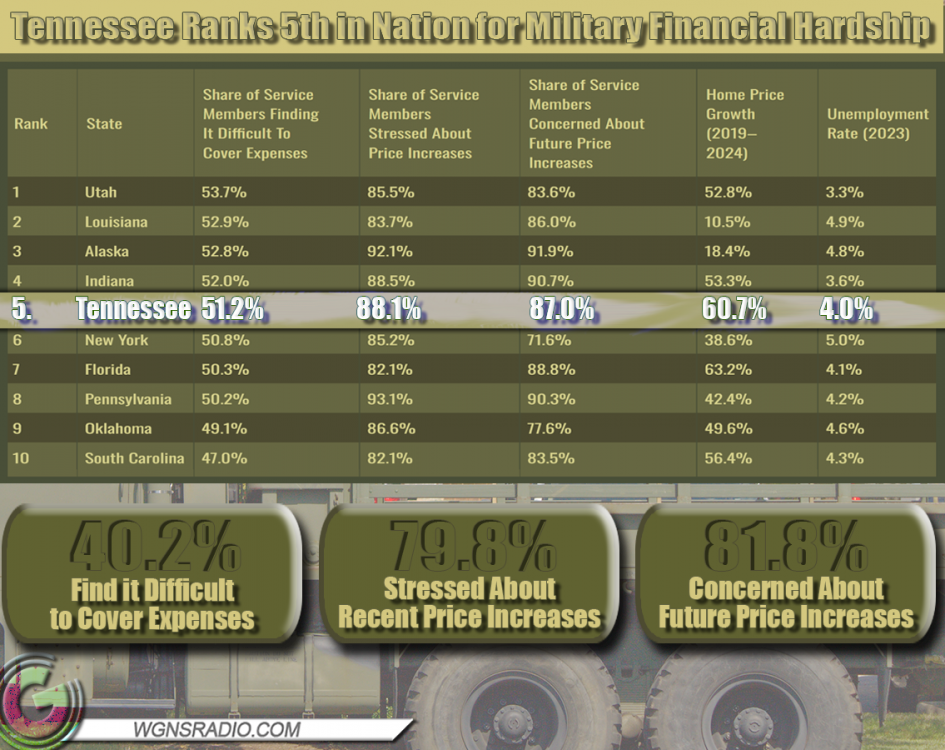RUTHERFORD COUNTY, TN - A recent report from UpgradedPoints highlights the mounting financial challenges faced by military households across the United States, with Tennessee ranking 5th among states experiencing the highest levels of financial strain on service members. Unfortunately, this high ranking isn’t a positive one; in this study, a lower number means a higher level of financial stress for those serving our country. The report shows that more than half of Tennessee’s military members—51.2%—struggle to cover everyday expenses. Additionally, 88.1% of military households in the Volunteer State report heightened stress due to rising costs, putting Tennessee above other states like California, New York, and Georgia in terms of stress levels for military families.
Housing affordability stands out as one of the significant hurdles for military families in Tennessee. Between 2019 and 2024, Tennessee home prices climbed by 60.7%, securing the state the 7th spot for rapid housing price increases in the U.S. In contrast, Louisiana saw the smallest increase at 10.5%, while Montana topped the list with a 68.7% spike. For military members often relocating with each new assignment, Tennessee’s surging housing market further compounds the financial burden they face on top of inflation-driven price hikes.
In Murfreesboro, home values continue their steady climb. According to Zillow and Redfin, the average value of a home in the ‘Boro now stands at just over $409,000, reflecting a 1.7% increase from last year’s average. In downtown Murfreesboro, the average value is even higher, coming in just shy of $515,000. Nearby, Smyrna’s average home price is approximately $390,000. Across Rutherford County, average home values range between $399,000 and $465,000, depending on the area.
The findings are based on the U.S. Census Bureau’s Household Pulse Survey, which surveyed service members on their ability to meet household expenses, concerns about inflation, and their outlook on future financial challenges. WGNS interviewed one military member familiar with these challenges, who noted that “many military members are turning to food stamps while on active duty.” This individual’s insight underscores the rising financial strain that service members are experiencing nationwide, where 40.2% of service members struggle with basic living costs, and that number exceeds 50% in several states.
The data sheds light on broader economic issues impacting military personnel at rates beyond the civilian population, with Tennessee’s military families reflecting a microcosm of the nationwide issue. Holidays such as Memorial Day and Veterans Day emphasize the sacrifices of military service, but for many Tennessee military families, financial sacrifices are also a daily reality. As inflation continues to pressure military budgets, concerns grow over their long-term impact on service members' quality of life and stability.
As inflation’s impact shows no signs of slowing, the report urges both government agencies and communities to consider the unique financial pressures faced by military families, many of whom face the compounded difficulties of moving frequently and adjusting to new cost-of-living landscapes.





